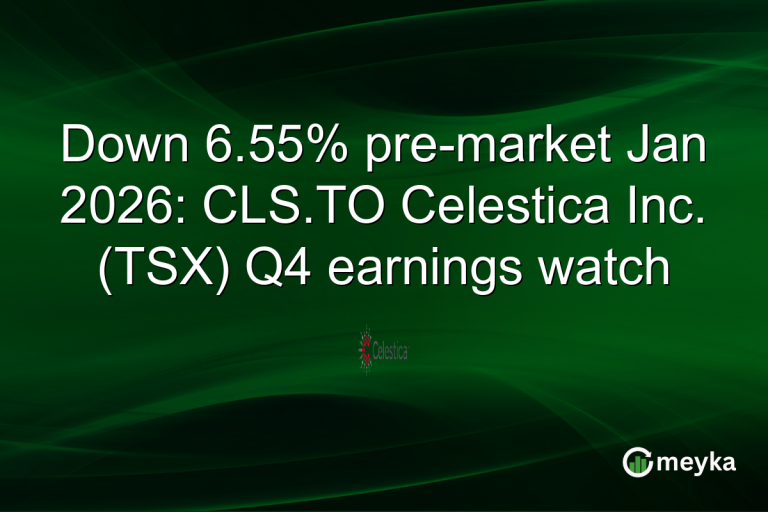Delay in Consumers Energy J.H. Campbell Plant Closure: Impact of Federal Intervention
The recent delay in closing Consumers Energy’s J.H. Campbell Generating Plant has stirred discussions around energy policy. Initially set to cease coal operations by May 2025, federal intervention mandates the plant remains operational until at least November 2025. The Department of Energy fears electricity shortfalls might arise otherwise. This shift highlights broader implications not only for Consumers Energy but also for the coal plant extension debate and energy policy impacts.
Federal Intervention and Energy Policy Impacts
The decision to extend operations at the J.H. Campbell Plant didn’t come lightly. With potential power shortages looming, the federal mandate ensures electricity stability. The company initially planned to pivot to cleaner energy sources by closing the coal plant. This delay underscores the ongoing challenges in energy policy where coal plant extensions are weighed against environmental goals.
Energy policy debates often center around balancing reliable energy supply against environmental commitments. The November 2025 extension marks a critical juncture, emphasizing that infrastructure readiness often lags behind green policy ambitions. The significance of keeping a coal plant operational highlights the tension between maintaining current energy reliability and swiftly transitioning to renewable sources. This extension might drive policymakers to reassess timelines for similar projects across the U.S.
Financial Implications for Consumers Energy
The delayed closure also carries financial implications for Consumers Energy. Operating costs will inevitably rise due to continued coal usage, impacting the company’s financial metrics. Currently, CMS Energy Corp’s market cap stands at $21.58 billion, with a P/E ratio of 21.27, indicating investor confidence. Yet, concerns loom about increased operational costs affecting profitability.
Operating cash flow per share currently sits at $9.54, which provides a cushion against rising expenses. However, any financial strain from extended operations could affect future dividends, currently yielding 2.96%. This scenario might prompt analysts to revisit their assessments. Presently, among the eight analysts tracking CMS, seven recommend buying, reflecting optimism. But this recommendation might waver if costs outstrip earnings.
Market Reactions and Stock Performance
The stock market’s response to such interventions is inevitable. As of now, CMS shares trade at $72.09, slightly down by 0.18%. This minor dip indicates resilience despite the unexpected plant extension. Over the past year, the stock has appreciated by over 23%, showcasing strong historical performance. However, the short-to-medium term might see fluctuations.
With a target high of $83.00 and a consensus of $76.33, analysts expect growth post-adjustment phase. The plant closure delay adds an unanticipated variable to stock valuation. Therefore, investors might see mixed movements in the CMS stock in response to evolving operational efficiencies and federal energy policy shifts.
Leveraging Real-Time Data for Strategic Decisions
Investors must rely on real-time data to navigate these uncertainties. Platforms like Meyka, offering comprehensive analytics, enable informed decision-making by providing real-time stock insights and predictive analytics. As we wait for clear directions post-November 2025, Meyka’s tools assist stakeholders to remain ahead of market swings.
Such technology-driven insights are invaluable, especially when policy decisions abruptly change project timelines. By leveraging detailed market data, investors can fine-tune strategies, mitigating risks associated with asset-intensive industries.
Final Thoughts
The delay in closing the J.H. Campbell Plant illustrates the complex interplay between energy policy and operational realities. While Consumers Energy faces increased costs, the broader dialogue on energy transitions continues. As we navigate these dynamic shifts, utilizing platforms like Meyka for real-time insights can offer a strategic advantage. Investors and policymakers alike need to remain agile, adapting to the evolving energy landscape.
FAQs
The U.S. Department of Energy intervened, citing potential electricity shortages as the reason to mandate the plant’s operation until November 2025, beyond the initially planned May 2025 closure.
Continuing operations will increase costs, potentially affecting the company’s financial metrics and investor perceptions. However, CMS currently maintains a strong market position.
The CMS stock showed a slight decrease in value but has remained relatively stable. Analysts continue to project growth, considering the plant’s extended operation as a variable in future evaluations.
Using real-time data platforms like Meyka can help investors make informed decisions by analyzing detailed stock insights and predictive analytics amid evolving market conditions.
Disclaimer:
This is for information only, not financial advice. Always do your research.






